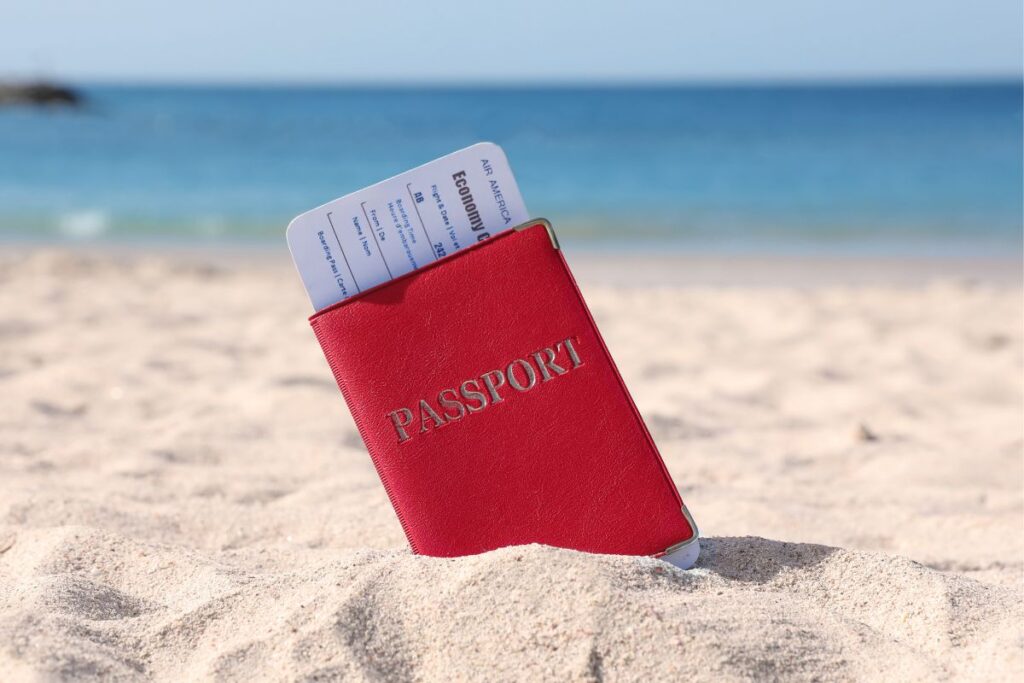How To Prepare For First International Travel Trip

It’s happening! You have made the decision to travel this year. Going abroad for the first time can be both exciting and scary. Regardless of how much you have travelled in your home country, travelling to a new destination is always fascinating. It is often difficult to choose your first international destination from your ever-growing bucket list. On the off chance that you don’t know where to travel, then choose a destination based on your personal interests. It’s fine if you skip making a trip to the most well-known spots. While choosing your destination, remember a few things:
- Whether you want to stay close to or far from your home country,
- How long will you be staying?
- What would be the most exciting part of your trip?
Traveling abroad is not that confusing. If you still feel you don’t know enough about how to plan your trip, you can hire a travel agency, as they have a wealth of experience and offer deals on nearly everything from flights, hotels, tourist guides, and car rentals.
Here are some of the best travel tips to make your vacation smooth and memorable, as well as complete your first international travel goal like a pro.
Valid Passport
This is the most vital step for foreign travel. If you don’t have a passport, apply for it now, as this procedure can take time, and surely you would prefer not to destroy your get-away. Ensure that your passport has six months of travel permit legitimacy and enough clear pages. Keep your passport up-to-date; if any of the information is changed or inaccurate, please update it immediately.
Check the visa requirement.
You are honoured if you have solid travel permits, like in Germany, the US, or the UK. You probably won’t need to apply for a visa for several countries. For rest, obtaining a visa can be a stressful task on your dream vacation. You need to find out if the destination you are traveling to requires a visa or issues one upon your arrival. Be careful and check out essential documents before you apply for a visa, as a slight mistake can prompt a visa dismissal. Likewise, the documents required by embassy can vary according to the type of your visa.
Local Research
Traveling abroad can be a remarkably simple effort when you’re prepared. Do research on your destination and find out everything you need to know before going. Learn about the culture, monetary system, important festivals, interesting events, specialty dishes, and local markets. So that you won’t miss the big events going on in the city and experience a strong culture when you are there. Seek interactions with and suggestions from the locals whenever you can.
Advance Booking
This is the biggest question for a first-time traveler: how far in advance should you book your trip? Choosing right season to travel can make a lot of difference Don’t think expensive hotels and flights are the only alternatives. If you are travelling abroad, pre-booking big things (flights, accommodation) can actually save a lot of cash. The lowest air flights are offered 4 months in advance. Most people don’t know that advance booking for rail passes, cruises, concert tickets, event passes, and car hire can cut additional expenses and avoid last-minute hassle when you arrive.
Travel Insurance & Vaccination
Yes, you should buy travel insurance. Getting unexpected medical care when you are on vacation could turn out to be expensive. In such circumstances, travel insurance can be very profitable. When a flight gets cancelled or delayed, the insurance policy will simply cover most of the additional expenses. Further, travel smart and protect yourself by getting vaccinated before you travel. Talk to your physician about the vaccines and antibiotics you require based on your travel destination to keep yourself safe and healthy on your trip.
Security
Keep your passport safe and close by. Possibly you are not asked for identification but carry it all the time during travel days. Also, keep duplicates of your travel permit in print and spare them in an email for the situation where your passport got stolen or lost, in addition to confirming your citizenship. Give a duplicate of your identification back to the home or somebody whom you can trust. You don’t know what you might need on your trip so gather and backup all your duplicate documents and files in your backpack.
Money
Make sure you check the conversion rate and do a little math to get a sense before you travel. Cash is easy to work with and accepted everywhere; you can exchange your currency at the airport. However, you generally get better rates at a local bank than at an airport. Make sure you don’t keep all your valuables and cash in the same place; distribute them in different bags. The simplest would be using your current (chipped debit or credit card) cards. Check if your cards are accessible in the country you are traveling to, and in some cases, you need to inform your bank about the dates and country you will travel to. So that they do not block your card considering some suspicious activity as per security measures.
Luggage & Packing
Ready to get started? Every airline has its own set of guidelines; make sure you go through them to avoid additional charges. Start packing with the necessary things first and if possible, make a checklist and keep adding things to that list whenever you memorize anything. Take the weather into account and pack your clothes accordingly. Roll clothes to save more space rather than folding and wearing bulky items; don’t pack them. Save some space for gifts or souvenirs. Carry either a zip lock or any sealable plastic bag for any toiletry items like liquids or gels (shampoo, lotion, toothpaste, or perfume). Weigh your bag and luggage before you leave for the airport.
Local Language & Pocket Map
Before traveling abroad, learning basic phrases and words in a local language can be extremely helpful. Communication with locals can open up new potential encounters or experiences. The basic phrases to know in any language are hello, thank you, please, excuse me, how much, help, and so on. Also, there are many travel applications that will keep you updated about routes and major attractions. However, always carry a pocket map, as you will not feel lost even if there is no network access and it will simply help you figure out where you are.
Don’t Be Scared
It’s great to socialise with other tourists; there is so much you can learn from the people from different countries and cultures. Talk to hotel staff, a taxi driver, a stranger who helped you and others; this can give you instant bonding with the home crowd and another way to experience the vibe of the place you visit.
“The impulse to travel is one of the hopeful symptoms of life.”
Now you are prepared to go? Whether you have a limited budget or not, traveling abroad on your own can be the best adventure of your life; you decide the itinerary and the plans. Keeping yourself or your companions safe is the top priority while travelling to another country. A first trip can be a bit daunting but you adapt quickly.
